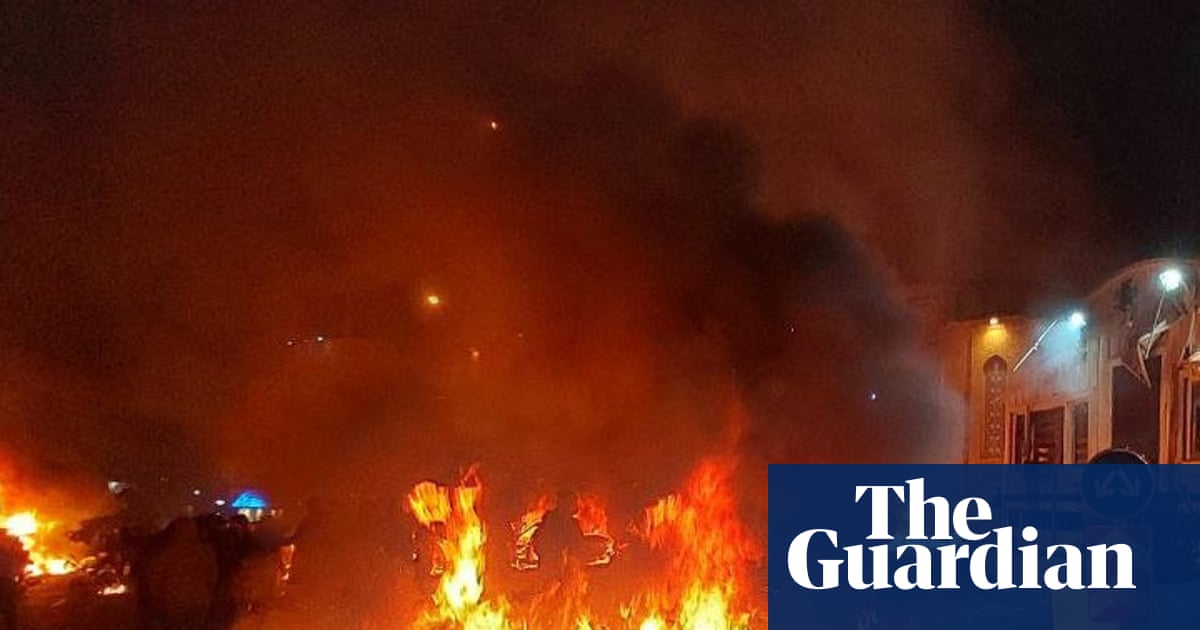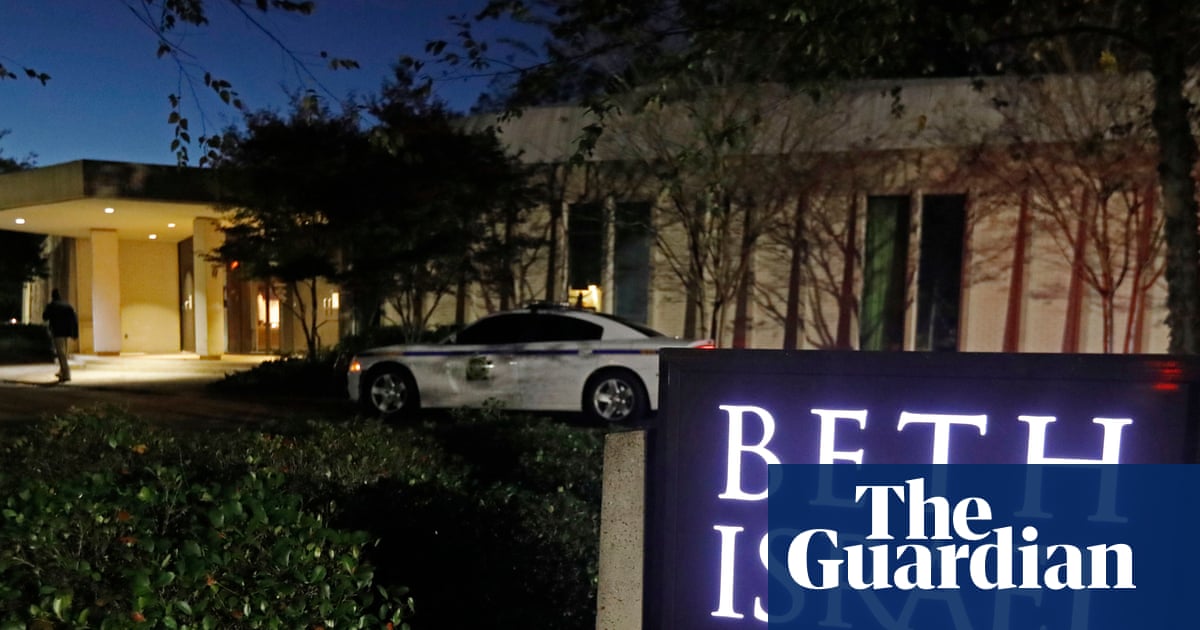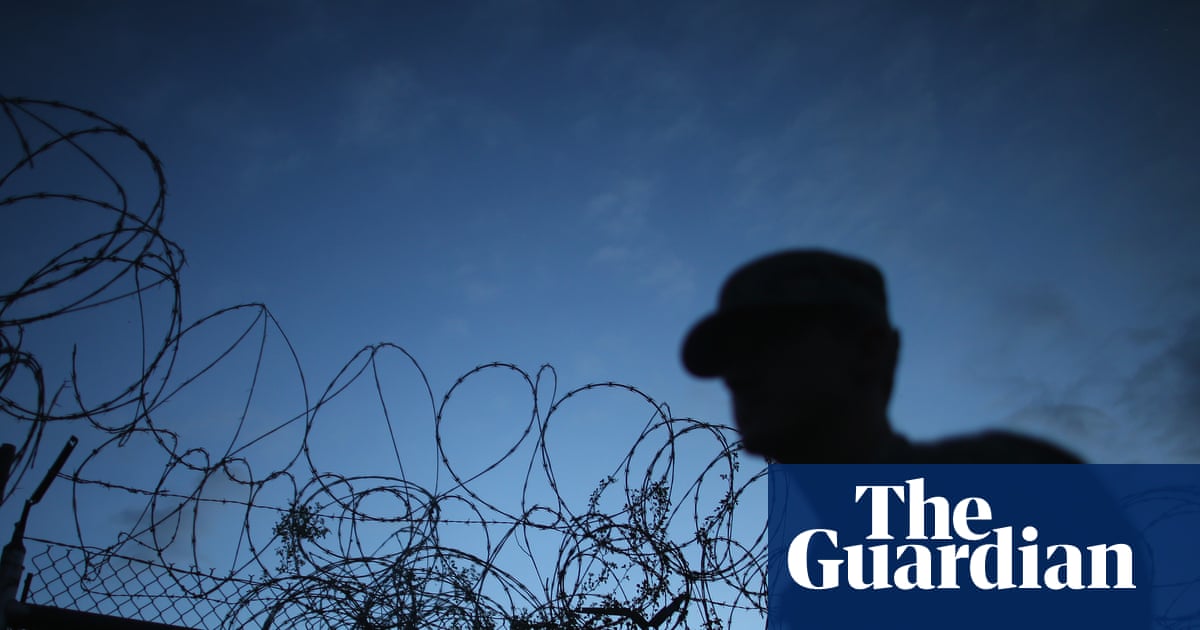“Our women, our daughters are scared to walk the streets,” Tommy Robinson told tens of thousands of cheering supporters at last Saturday’s “unite the kingdom” rally. “Their safety has been taken from them,” he said, his voice croaking from the strain of shouting into his microphone. Communities were crumbling, he added, “at the hands of open border, mass uncontrolled immigration”.
The need to protect women and children from the threat posed by illegal immigration has this summer become an increasingly frequent rallying cry used by politicians on the right to justify a hardening anti-immigrant rhetoric.
The resurgent use of the phrase has provoked many questions for analysts of the evolving debate on immigration. When did something that has been in the far right’s playbook for decades re-emerge as the right’s most favoured anti-immigration slogan? Since when did women become so vulnerable that they need the protection of vigilante protest groups? How accurate are the claims made by right-wing politicians about the link between sexual assault and illegal immigration?
Reform politicians have recently seized on the need to protect women and children against an apparent threat posed by illegal immigrants. Focus on the pressures posed by immigration on jobs, housing and schools has increasingly been replaced in the prevailing anti-immigration rhetoric by the characterisation of migrants as sexual predators.
Last month Nigel Farage said anger over the use of hotels to house asylum seekers was moving from concern over “fairness – why on earth are people being given all these things – to very much about the safety of women and children”.
Reform’s first female MP Sarah Pochin said: “We are the only party that is talking about what we need to do to protect women and children from the ever-increasing number of illegal migrants living in our communities.”
Rob Ford, a professor of political science at the University of Manchester, said: “The goal this rhetorical device achieves is timeless.”
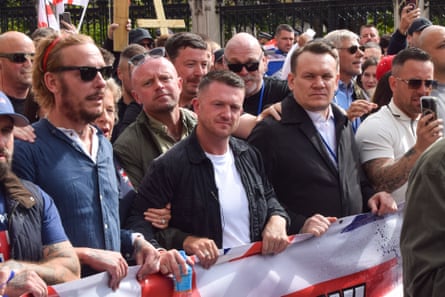
He noted that the phrase has a potent three-pronged function: legitimisation, stereotyping and mobilisation. Firstly, it reframes aggressive hostility towards immigrants as something calmer and entirely justified in the interests of defending vulnerable members of society.
“When you use the phrase ‘protect women and children’, you’re focusing the listener’s mental image on the idea of defence rather than threat,” Ford said. “You’re saying: ‘We’re not the aggressors. They are the aggressors’.
“Secondly, the phrase also brings to the fore the most negative possible stereotypes about immigrant groups. From the dawn of the far-right debate about immigration in Europe, you’ve seen violent criminals and rapists being the go-to trope.”

The phrase also had a powerful mobilising impact, he said. “If you’re trying to mobilise people, you need to get people to see a political issue in terms of a clear and present danger, an imminent threat that they need to defend against. They all use this language because it serves all three of these purposes.”
Similar language around the need to defend women and children from immigrants has been used by Viktor Orbán in Hungary and Giorgia Meloni in Italy.
Jean-François Drolet, a politics professor at Queen Mary University of London, said he had observed a growth of this rhetoric in the UK. “At first sight it seems benign language, but when you unpack it there is such a cluster of issues for the far right nesting in this phrase,” he said. There was a paternalistic subtext, hinting also at a need to protect the traditional gender roles and family values which have come under attack from a liberal elite.
The narrative is increasingly prevalent in the US. Donald Trump spoke about the need to defend women and children from undocumented migrants during his election campaign, promising: “I will protect women … The suburban women are under attack.”
Vice-president JD Vance said: “I don’t want my children to share a neighbourhood with people who are not properly vetted.”
In the US, the notion that male politicians need to protect women and children comes packed together with a shift towards a new strand of patriarchy, where the “tradwives” movement is fashionable, where masculine energy in the workplace is praised by Mark Zuckerberg, where a pro-natalist vision is promoted by Elon Musk and where Trump’s own comments on pussy grabbing are no longer much mentioned.
Conservative politicians are reaching for the same phrases. The shadow home secretary, Chris Philp, said rising numbers in asylum hotels was “a public safety crisis, especially for women and girls”. In a newspaper column, the shadow justice minister, Robert Jenrick, last month gave details of “a spate of crimes, all allegedly committed by migrants”, adding that he feared for the safety of his three young daughters.
Jenrick’s concern that some people who have migrated to the UK have “medieval attitudes to women” reflects a new strain of nationalism known as “femo-nationalism”, a co-opting of feminism to promote a nationalist agenda.
“Exploitation of alleged concern for women’s safety in order to justify xenophobic and racist attitudes towards Muslim men has been labelled ‘femo-nationalism’ – where white, western culture is represented as superior to eastern, Islamic culture, evidenced in apparently better conditions for women,” notes the Runnymede Trust, a race equality thinktank..
“Not only does this suppress the fact that violence against women and girls is pervasive in the UK, but it plays on racist assumptions of people of colour as less advanced and developed than white, western cultures.”
The threat of violence may in any case lie closer to home. Guardian analysis showed that two out of every five people arrested after participating in last summer’s post-Southport riots had been previously reported to the police for domestic abuse.
The arrest in July of Hadush Kebatu, from Ethiopia, triggered a summer of protests and helped fuel this rhetoric. Kebatu, who was found guilty earlier this month of two counts of sexual assault and one attempted sexual assault, against a 14-year-old girl and a woman, had arrived in the UK days earlier on a small boat, and was housed at the Bell hotel with other asylum seekers in Epping.

Colchester magistrates court heard that Kebatu tried to kiss two girls on 7 July after one of them offered him a pizza. His advances were rejected. He also sexually assaulted a woman by putting his hand on her leg after she offered to help him with his CV, the court heard. Kebatu will be sentenced next week and has been warned that he faces a stretch in prison.
This summer’s Epping incident has been loosely bracketed in protesters’ minds with other issues that have nothing to do with small boats, but have been weaponised in the same breath as examples of threats posed by multicultural Britain. Anger over grooming gang scandals linger.
Musk appeared by video link at last Saturday’s protest claiming that the UK government had failed to “protect innocent people, including children from being gang-raped”. The killing of three children at a Taylor Swift dance class last year by Cardiff-born Axel Rudakubana also sparked unrest when he was misclassified on social media as an illegal migrant.
Meka Beresford, the head of policy at Action for Race Equality, was concerned by rising references to asylum seekers as “fighting age men”. “This weekend’s protests served as a stark wake-up call for how quickly these sentiments have spread. Violence is something that, unfortunately, happens in every ethnic group, in every age group, in every socioeconomic group,” she said.
Reform party officials have recently produced statistics to bolster the argument that women and children need protection. “An Afghan male has a 22 times more likely chance of being convicted of rape than somebody born in this country,” Farage claimed in August, referring to an analysis of Ministry of Justice figures conducted by the Centre for Migration Control, which describes itself as an organisation “committed to controlling and dramatically reducing migration to Britain”.
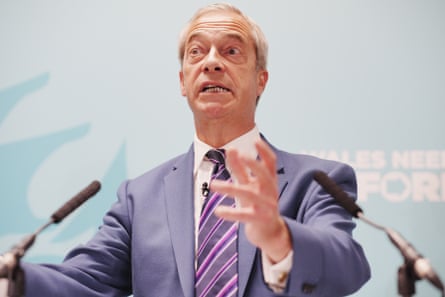
The Oxford Migration Observatory has also been analysing offending rates of foreign nationals and is cautious about the claim. “It’s likely that rates of criminal convictions vary by nationality, but we can’t measure them precisely,” Ben Brindle, a Migration Observatory researcher, said.
Brindle analysed the prison population and controlled for age. “Younger men are more likely to commit crimes. People crossing the Channel are more likely to be younger men, so that is going to play a play a part. But once you control for age, what we found is that we would expect the foreign national prison population to be bigger than what we actually see in reality,” he said.
Lorraine Cavanagh, who received an OBE for her work as a community organiser in east London, set up a “pink patrol” movement in July after the Britannia hotel on the Isle of Dogs was repurposed as accommodation for asylum seekers. She has recruited about 80 women, who dress in pink, attend protests and will soon be tasked with supervising parks and playgrounds in the area, watching out for harassment of women and children by migrants.
She acknowledged that the group was set up in response to a “fear of” attacks rather than any recorded local instances of sexual assault. “We make it quite clear that probably 99% of the people that are in the hotel wouldn’t hurt a hair on a child’s head, but we are not prepared to play roulette with our children,” she said.
She was irritated by the suggestion that the group’s concerns were motivated by anti-immigrant sentiment. “I don’t give a rat’s arse if I’m called far-right. I’m protecting women and children in my community,” she said.

 3 months ago
113
3 months ago
113
